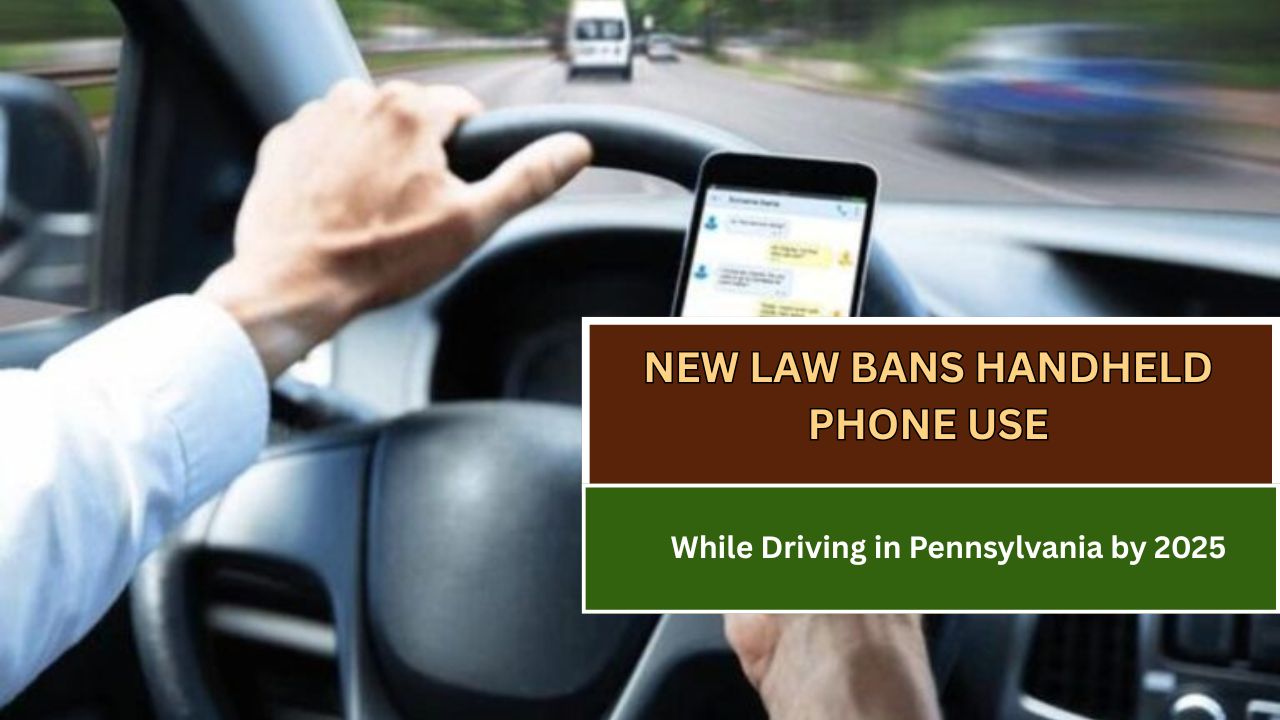PENNSYLVANIA, USA — A sweeping new traffic safety law will ban the use of handheld phones while driving in Pennsylvania, starting June 5, 2025, in a move state officials say will save lives and reduce distracted driving crashes. The legislation, known as Paul Miller’s Law, is named after Paul Miller Jr., a 21-year-old man who tragically died in 2010 after being hit by a distracted driver.
The law will prohibit drivers from holding a phone for any reason—whether texting, scrolling social media, making a call, or reading notifications—while operating a vehicle, even at a red light. The only exceptions will be hands-free functions such as Bluetooth, dashboard systems, voice commands, or in the event of an emergency call.
A Year of Warnings, Then Fines
While the law officially takes effect in June 2025, a one-year grace period will follow, during which police will issue warnings but no monetary penalties. Full enforcement, including $50 fines, will begin in June 2026.
“This new law is going to prevent distracted driving,” said Fritzi Schreffler, spokesperson for PennDOT. “We say, ‘Eyes on the road, hands on the wheel,’ and this really means it.”
PennDOT has reported thousands of crashes every year related to distracted driving, with phone use behind the wheel cited as a leading factor. In 2023 alone, numerous incidents were tied to driver inattention caused by handheld devices. (PennDOT Distracted Driving Resources)
Public Awareness and Education Campaign
To prepare drivers for the new law, PennDOT is launching a statewide education campaign to raise awareness and explain what is and isn’t permitted.
“It’s going to be another year of us educating,” said Schreffler. “We hope that when drivers get pulled over and receive a warning, it’ll make them think twice before doing it again. That’s really what we want—change the behavior before it becomes a ticket.”
Local and state law enforcement will collaborate throughout the transition period, stopping drivers who violate the law and informing them of the new regulations.
Support from the Public and Advocates
Many drivers across the state support the new law, saying it’s a long-overdue change.
“A lot of new cars let you connect to your phone, and I think if it’s important, you can stop and talk,” said Oksana Tsimmerman, a Pennsylvania driver. “Unless it’s an emergency, there’s no excuse to be holding your phone.”
For the Miller family, the law is deeply personal. After years of lobbying for reform in memory of their son, they see Paul Miller’s Law as a critical step toward making Pennsylvania’s roads safer for all.
What Drivers Need to Know
Here’s a breakdown of what’s allowed and not allowed under the new law:
not Allowed (Starting June 5, 2025):
- Holding a phone to talk, text, or navigate
- Scrolling through apps or social media
- Taking videos or photos while driving
Allowed:
- Using hands-free devices (Bluetooth, dashboard systems)
- Making emergency calls (e.g., to 911)
- Voice-activated commands for calls or texts
Drivers are encouraged to start transitioning now to hands-free alternatives and to build safe driving habits well before enforcement begins.
Background: Paul Miller’s Law
Paul Miller Jr. lost his life in 2010 after being struck by a distracted driver. Since then, his family has campaigned tirelessly for tougher distracted driving laws in Pennsylvania. Paul Miller’s Law reflects their decade-long fight for legislation that prioritizes attention and safety on the road.
With this law, Pennsylvania joins over two dozen states that have enacted hands-free driving laws to combat the growing dangers of smartphone use behind the wheel. According to the National Highway Traffic Safety Administration (NHTSA), distracted driving claimed over 3,500 lives in the U.S. in 2021 alone.
This article has been carefully fact-checked by our editorial team to ensure accuracy and eliminate any misleading information. We are committed to maintaining the highest standards of integrity in our content.

Outside of work, he enjoys playing chess, following cricket, and writing short stories. His commitment to integrity and in-depth analysis strengthens OTE News’ mission of providing trustworthy journalism.



